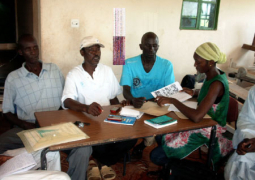The Gambia government is planning to introduce a set of new measures to ensure fair and honest pricing of essential food commodities.
“The Ministry of Trade, Industry, Regional Integration and Employment in collaboration with the Ministry of Lands and Regional Governments is organizing a meeting with all the Regional Government Authorities to brief them on the new government measure to ensure fair and honest pricing of essential food commodities,”a statement by the Trade ministry in Banjul said.
This is quite overdue as commodity pricing and price hikes have been a serious issue and headache for consumers in The Gambia over the years, especially in periods leading to feasts such as Ramadan and Christmas.
For instance, while occasions like Ramadan and Christmas are supposed to be periods of charity and blessings, they become a time of spiraling food prices and hoarding, with many essential items going out of reach.
In some cases, retailers also complain of rising prices as wholesalers and importers continue to take a huge amount of dalasis from them for commodities. This situation leads to a vicious cycle of the burden of bearing the brunt of overpricing being transferred to the public or consumers from the wholesalers and or retailers in the commodity-trading chain.
Price hikes for a particular item in the country don’t qualify as inflation. It is so because if one thing gets more expensive, but something else gets cheaper, that’s what economists call a relative price change, not inflation. Inflation is a simultaneous increase in prices across the board, which could be deduced via some measures of inflation such as the GDP deflator, which tracks price changes that affect businesses, as well as those that affect consumers.
However, what we are facing in the country is not necessarily inflation but mere price changes effected by wholesalers and, in some cases, retailers to generate more profits taking advantage of situations such as feasts and the like, leading to profiteering, which is detrimental to the economic condition of the average person.
One thing again that has to be taken into consideration is that of demand over supply, in light of too much money chasing too few goods. But this is always cushioned by appropriate monetary policy measures applied by the central bank or similar bodies.
Unfair and dishonest increase in food prices has to be really put in check, as it is increasingly common to see variedly polarized prices of the same commodities being sold in shops and boutiques in the same locality.And all the sellers could say is they purchase their items at different prices. Who is responsible for this nagging situation needs to be tackled to curb such a phenomenon.
It is, therefore, essential that the Trade ministry and the Ministry of Lands and Regional Governments are organizing a meeting with all the regional government authorities to brief them on the new government measure to ensure fair and honest pricing of essential food commodities.
“Price is what you pay. Value is what you get.”
Warren Buffett



